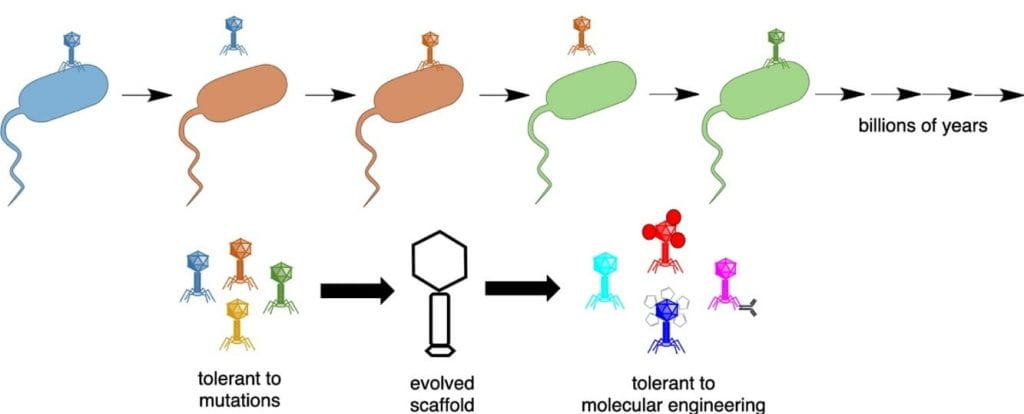When Huan Peng first cloned M13 chimeras by mix-and-match with other filamentous phages, in order to change the host targeted, we thought we’d probably need to do at least a little directed evolution to improve the folding or affinity of the new chimeras. That was not the case – all of the five chimeras worked right off the bat (Peng and Chen, ACS Nano 2019). In fact, the phages were also perfectly happy with more modifications, including non-selective thiolation and attachment of nanoparticles. Not to look a gift horse in the mouth, but why didn’t the phages give us more problems?
In this perspective article, we speculate on the origin of this robustness. We suggest the phages tolerate molecular engineering well because they have been selected to tolerate another type of chemical modification, namely mutations, brought on by the evolutionary ‘arms race’ with bacteria.
Peng H and Chen IA. Phage engineering and the evolutionary arms race. Curr. Opin. Biotech. 68:23-29.

